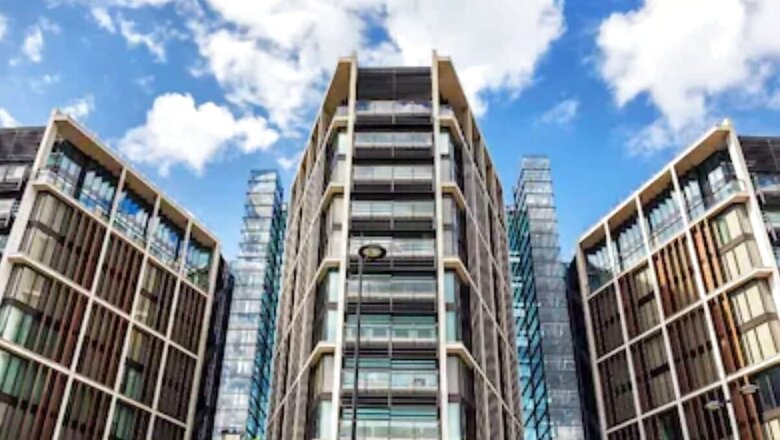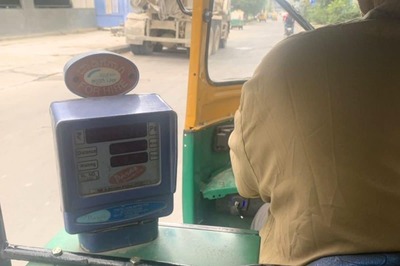
views
Purchasing a property that is still under construction can be a profitable venture, but it comes with its set of challenges. Here’s what happened when a non-resident Indian (NRI) living in London had a bad experience with real estate company, Godrej Properties. According to The Economic Times, the builder sought 60 per cent payment for the flat over six months before the originally scheduled date of December 2017. The builder allegedly forfeited the NRI’s Rs 97 lakh advance payment in March 2018 after failing to meet the revised deadline. The builder demanded Rs 3.17 lakh in reinstatement fees and Rs 9 lakh in interest in April 2018, despite the NRI’s petition to keep the booking in place.
The NRI refused to accept the aforesaid stipulations and demanded that the builder restore the Rs 97 lakh he had previously paid when the agreement for sale was registered in 2016. However, the builder did not pay any money, citing legal requirements. It was eventually proven in MahaRERA courts that, after cancelling the NRI’s flat booking, the builder resold the flats to another person for ‘substantially’ more money.
Following this significant setback, the NRI refused to give up and succeeded in getting an order compelling the builder to return all money received, plus interest, without losing a single rupee.
A Summary Of The Case
The NRI purchased two flats in the ‘The Trees’ project by Godrej Properties. The payment plan agreed upon was as follows: 25 per cent of the entire consideration would be paid upon registration of the agreement, 60 per cent upon completion of the building’s last floor slab, and 15 per cent upon grant of possession of the aforementioned flats.
The total purchase payment for each flat was Rs 1,41,67,000 (about Rs 1.41 crore), and there were two flats, therefore the net consideration was around Rs 2.83 crore, of which the NRI paid Rs 97 lakh when the sale agreement was registered in 2016.
When Godrej cancelled the booking, no documented cancellation deed was issued, and no refund was provided. This is why the disagreement between the NRI and Godrej was filed in MahaRERA and later resolved in the MahaRERA appeal tribunal. Reportedly, Godrej sold these ‘cancelled flats’ for Rs 1.679 crore and Rs 1.629 crore, respectively, as disclosed much later in one of the case’s sessions before the MahaRERA panel.
Meanwhile, Godrej’s lawyers’ principal defence approach was provision 13(b) of the agreement of sale, also known as the ‘forfeiture clause’. Godrej’s lawyers stated before MahaRERA that this clause is common under the Maharashtra Ownership of Flats Act (MOFA), and the RERA panel cannot overturn it. The judge and the MahaRERA appellate tribunal did not dispute this fact. However, the MahaRERA appellate panel judge stated that while Godrej mentioned clause-13(b), the forfeiture can be of ‘earnest money’, the Rs 97 lakh collected from the NRI is not specifically stated to be ‘earnest money’. Godrej accepted it as part payment of the entire amount to be paid for the flats.
Furthermore, MahaRERA claimed Godrej engaged in unfair trade practices by failing to reimburse money after cancelling a property booking. Lawyers representing Godrej told MahaRERA that the payment plan was previously included in the application form and the sale agreement that the NRI signed. The sales agreement also included clause 13(b) regarding forfeiture, which the NRI signed.
After hearing both the arguments made by Godrej and the NRI, MahaRERA concluded that Godrej followed unfair practice and violated section 7 of the RERA Act. Hence, MahaRERA ordered Godrej to refund Rs 19.81 lakh (Rs 19,81,136) for flat no. 503 and Rs 19.24 lakh (Rs 19,24,186) for flat no. 504.
Following this order, both the NRI and Godrej filed appeals with the MahaRERA appellate tribunal. The NRI stated that he was liable for refund interest under Section 18 of the RERA Act. Another significant argument made by the NRI’s lawyer was the ‘registered cancellation deed’ under section 17(1)(b) of the Registration Act of 1908, which Godrej did not complete.
Godrej’s lawyers claimed that ‘Clause 13(b)’, which talks about the forfeiture of money supplied by the buyer of a flat in the event of cancellation, was lawful and that MahaRERA went beyond its jurisdiction to knock it down.
On August 13, the MahaRERA appellate tribunal issued the following order to Godrej. The company was first ordered to reimburse Rs 73 lakh (Rs 73, 57, 978). Then, Godrej was required to execute and register the cancellation deed within 30 days of this order and work with the Allottee to seek reimbursement from the relevant government authorities for the stamp duty, tax, etc. paid by the allottee. Finally, Godrej has been directed to pay interest at SBI’s highest marginal cost of lending rate (MCLR) plus 2 per cent of Rs 73 lakh (Rs 73, 57, 978) from the date of termination of the said agreements until the date of actual payment.


















Comments
0 comment